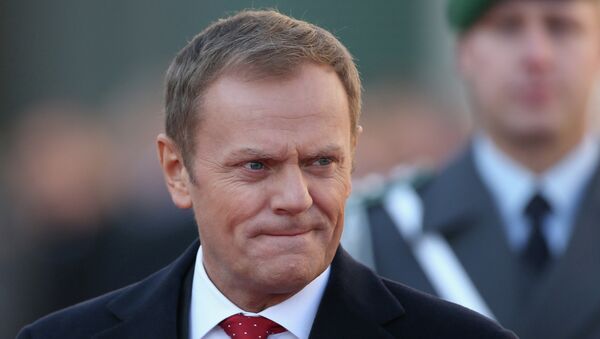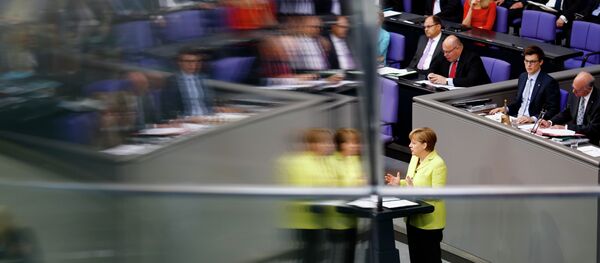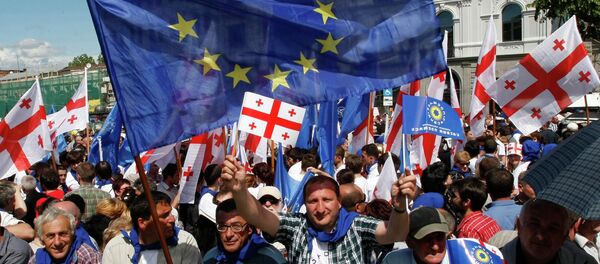Commenting on the EU's ongoing attempts to expand its influence into the former Soviet space, Tusk boldly declared that the EU "stays the course" and "is as committed to our Eastern Partners as ever," despite "intimidation, aggression and even…war."
Tusk, who played an instrumental role in the creation of the Polish-proposed initiative seven years ago, while serving as the country's prime minister, also stated with confidence that he is "absolutely sure that the Eastern Partnership is our shared priority – across Europe, not only for the eastern and central parts of our continent as it was five years ago."
Arguing that the Eastern Partnership program is not an initiative directed at Russia, despite Moscow repeatedly suggesting that the program is an attempt to expand the EU's sphere of influence, Tusk simultaneously scolded Russia as it were a jealous lover in need of a behavioral adjustment:
"The Eastern Partnership is not a beauty contest between Russia and the European Union. But, let me be frank, beauty does count. If Russia was a bit softer, more charming, more attractive, perhaps it wouldn’t have to compensate for its shortcomings by its destructive and aggressive bullying tactics against its neighbors."
Preempting Ukrainian officials' voicing their disappointment over the EU putting off the introduction of visa-free travel arrangements, despite promises made last year during the signing of the EU-Ukraine Association Agreement, Tusk also vaguely suggested that Ukrainian impatience for speedy change must be replaced with gradual, "step-by-step" progress.
Tusk is known for his critical attitude toward Russia's 'behavior' over the Ukraine crisis, essentially blaming Moscow for the civil war in eastern Ukraine. Despite a growing split among EU countries over the continuation of the sanctions policy, Tusk has also stated that he expects the EU to maintain sanctions until the full implementation of the Minsk agreements.



